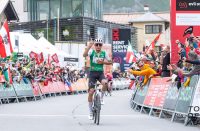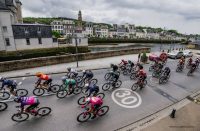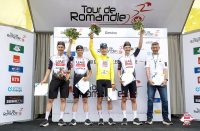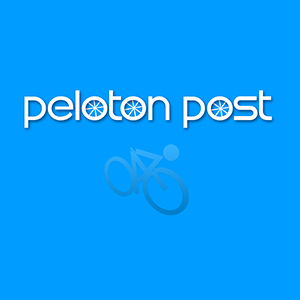Excerpts from this Velo News article:
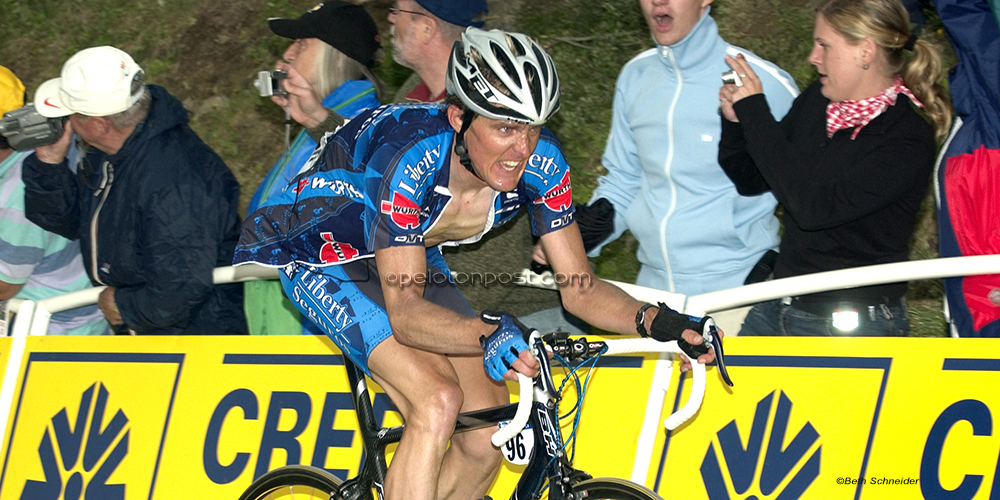
“Jaksche on doping today: ‘A wolf cannot change his fur’
“BESSASONE, Italy (VN) — Ten years after Operación Puerto, Jørg Jaksche has a hard time believing much has changed in cycling. A decade on, Jaksche lives in Australia, where he is pursuing a master’s degree in business administration, far away from the European peloton he watches with skepticism in the post-Puerto era. Many say the peloton has changed for the better, but Jaksche says he is not so convinced.
Now 39, the German ex-pro was among six riders of the dozens of racers linked to the 2006 scandal who were formally sanctioned in what is arguably the largest doping ring ever uncovered in cycling’s nefarious history. A pro from 1997 to 2007, Jaksche was a front-row witness to the good, bad, and very ugly of a peloton that was out of control
A son of German doctors who raced under an Austrian license, Jaksche won Paris-Nice in 2004, and raced in 11 grand tours. He lined up for some of the most notorious teams in the peloton, including Telekom, CSC, ONCE, Liberty Seguros, and Tinkoff Credit Systems. He saw and lived it all, and after he was busted, Jaksche stepped forward to help investigators in Germany and in the United States, but remains frustrated by what he sees as missed opportunities to change the peloton in the decade following Puerto.
On the 10th anniversary of the Puerto raids, VeloNews chatted to Jaksche via telephone to gauge his impressions of the modern peloton, his experiences as part of the Puerto doping ring, and why he regrets helping USADA to go after Lance Armstrong. Here are excerpts from the interview:
VeloNews: It’s been 10 years since the Puerto scandal, how much do you think has changed within professional cycling based on your experiences?
Jørg Jaksche: Nothing really has changed. There is a new UCI president, but if you break it down, the only real changes in cycling have come from pressure from WADA and the sponsors. Everything could go back to how it was 10 years ago if cycling is left to its own devices. If something has changed, it’s from external pressure, not because the people inside cycling wanted to change it.
VN: You don’t believe there is a new culture in cycling? That a new generation has come in without doping?
JJ: It is very difficult to trust the sport of cycling. I have a real problem with some of these managers. They ran teams that were winning at the high times of EPO doping, so it’s a little bit hard for me to believe today they are winning today on pan e aqua. A wolf cannot change his fur. Today, they tell you that because Lance Armstrong is out of the sport, that doping is out of the sport as well. Wait a minute — nearly every team director had something to do with doping. The hypocrisy still runs deep in cycling.
VN: So you insist that it’s naïve to believe that today’s winners are clean?
JJ: I often hope that things are as good and perfect as they tell us, but to be honest, the guys are racing faster today than when everyone was on EPO. Genetics doesn’t change in 10 years. Should we believe it that they are suddenly as fast as when EPO was widespread? You have to make up your own mind…
VN: We hear the stories about how easy it was to avoid detection, but today is must be more difficult?
JJ: It was very bad luck to have gotten caught for doping. When I turned pro in 1998, EPO was not detectible. The controls were easy to avoid. After I confessed, I had a meeting with the UCI, and I told them that I was blood doping and taking EPO and other drugs, and they were surprised because they thought I was one of the clean ones!
VN: So how surprised were you when the Spanish police busted up the Puerto ring in 2006?
JJ: We knew it was big when they arrested [ex-Liberty Seguros manager] Manolo Saiz, because they arrested someone for doping in sport in Spain, which everyone viewed as the free doping country. It was a big shock for everyone, because it was in the country where everyone thought they would never get caught for doping. Why do you think all the big cyclists moved to Spain? It wasn’t for the good training.
‘Almost impossible to win without EPO’
VN: When you were racing, was it possible to win without EPO?
JJ: Almost impossible. Whenever I had success, I was always using PEDs, but it was possible to race without it. I raced the 2000 Tour clean, because we were asked by the team to not take any risks because the sponsorship was up for renewal. We were really having a lousy Tour, but some of the riders on our team were carrying their own stuff, and then they won a stage. And later, the staff was so happy because they said they saved the team!
VN: Some have little sympathy for riders like yourself who doped, because wasn’t there a choice not to dope?
JJ: We were victims of the system, but we were all also participating in the system. We all had choices. We could work in a bike shop, or go to university. They said, ‘This is the program you need to win,’ and you are the one who made the decision, and, ‘OK, I will do it.’ No one ever held my hand into the fire, and pushed the needle into my arm. It was offered as these are the options you have. If you didn’t dope, it didn’t have consequences at first, but if you wanted to race the Tour de France, you wouldn’t have the results, and you wouldn’t be selected. There was no one forcing you to do it, but it was the system that was forcing you to do it. That’s how it worked. No one ever said you had to do EPO, but it was obvious that if you wanted to go fast, you had to take EPO.
VN: How did it work with Puerto ringleader Dr. Euefemiano Fuentes? Based on testimony, it sounded like conditions were unsafe?
JJ: Manolo [Saiz] introduced us to Fuentes, and said he’s our new doctor, and he will call you. The transfusions were always done in hotels, but they were always four-star [laughs]. You are more likely to get a virus or bacteria from a hospital, and Fuentes always kept things clean. From what we could see, he seemed careful, but what we didn’t know was what he was doing with it later. You didn’t know how long he kept the bags in the car, and you couldn’t control the follow-up, and how he handled the bags. Sometimes I heard it was pretty sketchy.
…
‘No one ever said, let’s stop this madness’
VN: Did you ever feel that things had gotten too crazy, and over the top?
JJ: For me, it was just part of the job. Believe me, I was never too happy or proud of what I did. We all knew it was somehow very crazy, that it had gone too far, but there was never anyone who stood up, and said, ‘Let’s stop all this madness.’ When I look back now, there was never anyone there who said something like that. We were all under pressure to perform and get results.
VN: There were reportedly up to 60 riders involved, but you were among the few given a sanction, which effectively ended your career, do you feel bitter about that?
JJ: I know there are some names of big riders that never came out. Perhaps not even half of the names have been revealed. There are still many people who have their blood bags in that freezer in the lab in Barcelona. Maybe they are not sleeping very easily at night, but today, you see them working as sport directors, or on TV as commentators.
VN: And then Armstrong was busted, and you participated in the USADA report, why did you agree to cooperate?
JJ: I was very surprised, because everyone thought Armstrong was untouchable. But when you get the public prosecutor involved, it was clear it was not funny anymore. I was part of this USADA report because I wanted to be transparent and help change cycling, but I have to say in retrospect, it was a mistake to have testified. The USADA report wasn’t about truth and honesty and change, it was only about going after Lance. I am almost embarrassed to have been part of this report, because it is so biased. All these people that testified, the only picture they draw is that Lance was evil, and that he made them dope. Well, that’s not true, because they continued to dope when they were on other teams!
VN: After you were caught, you decided to confess everything?
JJ: It was all very difficult for me, because some of the people pointing their fingers at us were the same ones who pushed us to doping the year before. When I was first spoke up, it was very delicate, and then I decided to admit everything, and I did something worse; I decided to accuse everyone in the entourage. I was going against the omertà, because I was fed up with the hypocrisy.
VN: What have you done since leaving cycling?
JJ: I come from a little bit different background. My parents are doctors, and they never liked that I became a professional cyclist, and in a certain way, that has helped me to look for something else in life. After I left cycling, I was fighting through some lows. I was tired and sad about my situation. Sometimes, it was hard to take it all in. You are being painted as the villain, sometimes by the same guys who were on a bed next to you drawing out the blood bags. Everyone is telling you that you are part of a bad generation, but no one was talking about the real problem of doping, about the culture of doping that was everywhere in professional cycling. Sometimes it was all very stressful, especially when you could finally see nothing would change, and seeing that the same old gangsters were still running the show. A few of us have paid the price of the sins of everyone. I tried to do what I could to help change the sport. I am OK now. I am living in Sydney, going to university, studying business.”

